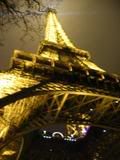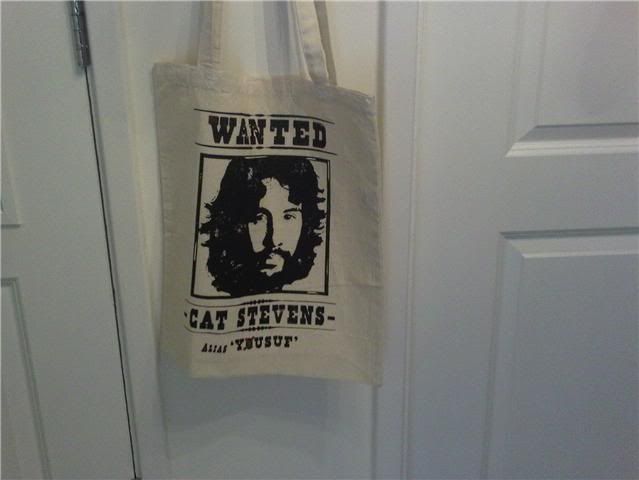Post by SuzieQ on Apr 18, 2009 4:53:47 GMT -5
Yusuf Islam's past, present in harmony on new album
(such a shame they have SAMI YUSUF pictured instead of "our" YUSUF! 
I see they have now removed the picture. 
By Ann Donahue
LOS ANGELES (Billboard) - Yusuf Islam is wearing a starched white shirt and sitting on a stark white couch at Hollywood's Roosevelt Hotel, sipping tea from a white teacup and admitting that he's taken aback by the hotel's lurid vibrancy.
"It's so ... Hollywood," chuckles Yusuf, the Artist Formerly Known As Cat Stevens, as Prince might call him. Rumored to be haunted by the ghost of Marilyn Monroe, the hotel is located on a vaguely upmarket stretch of Hollywood Boulevard -- in that it contains a Baja Fresh fast food joint instead of a fetish shop.
Hollywood -- a place perpetually in the process of reinventing itself -- seems an appropriate place to meet Yusuf (he now goes by the single name), whose back story is the stuff of cable TV biopics. After almost drowning in the ocean off the coast of Malibu in 1977 and converting to Islam, Yusuf left the secular music scene and stayed away for almost 30 years. He re-emerges to make occasional musical appearances for charity -- and has made involuntary appearances in headlines after several controversies surrounding his faith.
Since the Nielsen SoundScan era started in 1991, he has sold 6.2 million albums; his last one as Cat Stevens was released in 1978. But after receiving support from Islamic theologians about the propriety of performing music -- and with the unceasing encouragement of his son, Muhammad Islam, a singer-songwriter who records melodic folk under the name Yoriyos -- Yusuf returned in 2006 with "An Other Cup."
With the May 5 release of "Roadsinger" -- only his second collection of secular music since his conversion -- he reconciles his Cat Stevens singer-songwriter past with his man-of-faith Yusuf Islam present.
INTIMATE SHOWS
Yusuf, who splits his time between London and Dubai, will tour clubs to support the album, and the shows will feature music from both of his creative incarnations, according to his manager, David Spero. In the coming months he will perform in New York, Los Angeles, Chicago and Toronto, as well as some yet-to-be-announced European dates.
"It will be a very informal kind of setting where there might be some tables onstage, might be some friends having coffee and maybe a little conversation in between," Yusuf says.
The cover of "Roadsinger" is a cheeky nod to his Cat Stevens era; it features a snub-nosed 1969 Volkswagen van decorated with the iconic artwork from the "Tea for the Tillerman" and "Moonshadow" album covers. (Yusuf owns the van and drives it around London.)
"After I recorded 'An Other Cup,' I got a fantastic reaction, but a lot of people wanted to hear me do simple stuff, just with the guitar again," he says. "Perhaps I went to town a little bit with the production on the last album. I was just having fun with the new technologies -- we have endless tracks on Pro Tools. You can just flow them out and add and add, and I did."
Recorded in Los Angeles and London, the tracks on "Roadsinger" are stripped down, with his voice and guitar in the forefront.
While he's promoting the album on late-night and early-morning talk shows, Yusuf is writing the musical "Moonshadow," scheduled to debut in London's West End at the end of 2009. Like his upcoming tour, it's a blend of his classic songs, including the title track, and newer work. A corresponding soundtrack is expected later this year.
For Yusuf, working on the two projects simultaneously created some headaches: Which song goes into the stage show? And which on the album? Again, it was his son Yoriyos who guided him. "He said, 'Dad, let me have a go,'" Yusuf says. "He's got such ears. He wanted to create that journey that the album can take you on." Yoriyos will open for his father during Island Records' 50th anniversary concert series the last week of May at London's Shepherds Bush Empire.
MUSIC AS COMMON GROUND
Although Yusuf has reconciled his personal life with his creative history, he finds his ability to move between the two cultures overshadowed by politics. To put it bluntly, it's a tough time to be a Muslim with a Western fan base. But Yusuf believes that music can help harmonize different outlooks.
"I think the recent events of the world -- the polarization of creative chaos, if you like -- has helped create an upsurge in people wanting to mend this world and call humanity back to its senses," Yusuf says. "It's the same as when I was writing 'Peace Train' and the Vietnam War was going on. It was another very unpopular war, which created energy within the populace to speak out and sing out."
A series of incidents drew media attention, starting in 1989 when remarks he made at London's Kingston University were interpreted as support for the fatwa against author Salman Rushdie. Yusuf maintains that his comments were misunderstood, that he intended only to explain tenets of Islamic law. He issued a statement against vigilantism the day after his appearance.
In 2004, Yusuf was flying to the United States to meet his longtime friend and collaborator Dolly Parton when the Department of Homeland Security's no-fly list led to his being deported back to England. An official explanation was never given, but Yusuf released a statement saying that he was the victim of mistaken identity because of a misspelling on the list. (Yusuf since has been granted entry to the States numerous times without incident.)
A simple bureaucratic error, but in the post-9/11 era, one that still resonates. How is Yusuf dealing with it? By making fun of the situation. The song "Boots & Sand" was written after the incident and features Parton, Paul McCartney, Alison Krauss and Terry Sylvester portraying sheriffs and trading verses with Yusuf: Sheriffs: "Is your name this?" / Yusuf: "I guess it is." / Sheriffs: "You're on our 'no song' list." / Yusuf: "Oh no, sir, no. This can't be so!"
"It's a slight oddity of a song," Yusuf says. "The image I had was kind of a cowboy B movie made in Italy -- but the story came from real events, real people." It's a way of cleverly defusing the memories of the situation for Yusuf and the pop culture-consuming public. His manager, Spero, says the song may be released as a bonus track on the U.S. version of "Roadsinger."
The Fellini-inspired video for "Boots & Sand" was shot by Jesse Dylan in the desert outside Los Angeles and features Yusuf leading a band of weary travelers. "It's a goof," Spero says. "He took a real sense of humor to it."
Between these public incidents and personal crises of faith, Yusuf hasn't traveled an easy road. "One of the things he's realized again is what he does best is make music," Spero says.
One track on "Roadsinger," "Be What You Must" -- a piano-and-strings tune that features Michelle Branch, Gunnar Nelson and children from a London school that Yusuf supports -- strikes to the heart of the artist's conversion from pop star to religious devotee and his re-emergence to embrace his status as one of the industry's elder statesmen.
"That was inspired by a philosophical saying of Eckhart Tolle," Yusuf says. "He says, 'To be what you must, you must give up what you are.' I thought that said so much about my life."


By Ann Donahue
LOS ANGELES (Billboard) - Yusuf Islam is wearing a starched white shirt and sitting on a stark white couch at Hollywood's Roosevelt Hotel, sipping tea from a white teacup and admitting that he's taken aback by the hotel's lurid vibrancy.
"It's so ... Hollywood," chuckles Yusuf, the Artist Formerly Known As Cat Stevens, as Prince might call him. Rumored to be haunted by the ghost of Marilyn Monroe, the hotel is located on a vaguely upmarket stretch of Hollywood Boulevard -- in that it contains a Baja Fresh fast food joint instead of a fetish shop.
Hollywood -- a place perpetually in the process of reinventing itself -- seems an appropriate place to meet Yusuf (he now goes by the single name), whose back story is the stuff of cable TV biopics. After almost drowning in the ocean off the coast of Malibu in 1977 and converting to Islam, Yusuf left the secular music scene and stayed away for almost 30 years. He re-emerges to make occasional musical appearances for charity -- and has made involuntary appearances in headlines after several controversies surrounding his faith.
Since the Nielsen SoundScan era started in 1991, he has sold 6.2 million albums; his last one as Cat Stevens was released in 1978. But after receiving support from Islamic theologians about the propriety of performing music -- and with the unceasing encouragement of his son, Muhammad Islam, a singer-songwriter who records melodic folk under the name Yoriyos -- Yusuf returned in 2006 with "An Other Cup."
With the May 5 release of "Roadsinger" -- only his second collection of secular music since his conversion -- he reconciles his Cat Stevens singer-songwriter past with his man-of-faith Yusuf Islam present.
INTIMATE SHOWS
Yusuf, who splits his time between London and Dubai, will tour clubs to support the album, and the shows will feature music from both of his creative incarnations, according to his manager, David Spero. In the coming months he will perform in New York, Los Angeles, Chicago and Toronto, as well as some yet-to-be-announced European dates.
"It will be a very informal kind of setting where there might be some tables onstage, might be some friends having coffee and maybe a little conversation in between," Yusuf says.
The cover of "Roadsinger" is a cheeky nod to his Cat Stevens era; it features a snub-nosed 1969 Volkswagen van decorated with the iconic artwork from the "Tea for the Tillerman" and "Moonshadow" album covers. (Yusuf owns the van and drives it around London.)
"After I recorded 'An Other Cup,' I got a fantastic reaction, but a lot of people wanted to hear me do simple stuff, just with the guitar again," he says. "Perhaps I went to town a little bit with the production on the last album. I was just having fun with the new technologies -- we have endless tracks on Pro Tools. You can just flow them out and add and add, and I did."
Recorded in Los Angeles and London, the tracks on "Roadsinger" are stripped down, with his voice and guitar in the forefront.
While he's promoting the album on late-night and early-morning talk shows, Yusuf is writing the musical "Moonshadow," scheduled to debut in London's West End at the end of 2009. Like his upcoming tour, it's a blend of his classic songs, including the title track, and newer work. A corresponding soundtrack is expected later this year.
For Yusuf, working on the two projects simultaneously created some headaches: Which song goes into the stage show? And which on the album? Again, it was his son Yoriyos who guided him. "He said, 'Dad, let me have a go,'" Yusuf says. "He's got such ears. He wanted to create that journey that the album can take you on." Yoriyos will open for his father during Island Records' 50th anniversary concert series the last week of May at London's Shepherds Bush Empire.
MUSIC AS COMMON GROUND
Although Yusuf has reconciled his personal life with his creative history, he finds his ability to move between the two cultures overshadowed by politics. To put it bluntly, it's a tough time to be a Muslim with a Western fan base. But Yusuf believes that music can help harmonize different outlooks.
"I think the recent events of the world -- the polarization of creative chaos, if you like -- has helped create an upsurge in people wanting to mend this world and call humanity back to its senses," Yusuf says. "It's the same as when I was writing 'Peace Train' and the Vietnam War was going on. It was another very unpopular war, which created energy within the populace to speak out and sing out."
A series of incidents drew media attention, starting in 1989 when remarks he made at London's Kingston University were interpreted as support for the fatwa against author Salman Rushdie. Yusuf maintains that his comments were misunderstood, that he intended only to explain tenets of Islamic law. He issued a statement against vigilantism the day after his appearance.
In 2004, Yusuf was flying to the United States to meet his longtime friend and collaborator Dolly Parton when the Department of Homeland Security's no-fly list led to his being deported back to England. An official explanation was never given, but Yusuf released a statement saying that he was the victim of mistaken identity because of a misspelling on the list. (Yusuf since has been granted entry to the States numerous times without incident.)
A simple bureaucratic error, but in the post-9/11 era, one that still resonates. How is Yusuf dealing with it? By making fun of the situation. The song "Boots & Sand" was written after the incident and features Parton, Paul McCartney, Alison Krauss and Terry Sylvester portraying sheriffs and trading verses with Yusuf: Sheriffs: "Is your name this?" / Yusuf: "I guess it is." / Sheriffs: "You're on our 'no song' list." / Yusuf: "Oh no, sir, no. This can't be so!"
"It's a slight oddity of a song," Yusuf says. "The image I had was kind of a cowboy B movie made in Italy -- but the story came from real events, real people." It's a way of cleverly defusing the memories of the situation for Yusuf and the pop culture-consuming public. His manager, Spero, says the song may be released as a bonus track on the U.S. version of "Roadsinger."
The Fellini-inspired video for "Boots & Sand" was shot by Jesse Dylan in the desert outside Los Angeles and features Yusuf leading a band of weary travelers. "It's a goof," Spero says. "He took a real sense of humor to it."
Between these public incidents and personal crises of faith, Yusuf hasn't traveled an easy road. "One of the things he's realized again is what he does best is make music," Spero says.
One track on "Roadsinger," "Be What You Must" -- a piano-and-strings tune that features Michelle Branch, Gunnar Nelson and children from a London school that Yusuf supports -- strikes to the heart of the artist's conversion from pop star to religious devotee and his re-emergence to embrace his status as one of the industry's elder statesmen.
"That was inspired by a philosophical saying of Eckhart Tolle," Yusuf says. "He says, 'To be what you must, you must give up what you are.' I thought that said so much about my life."














